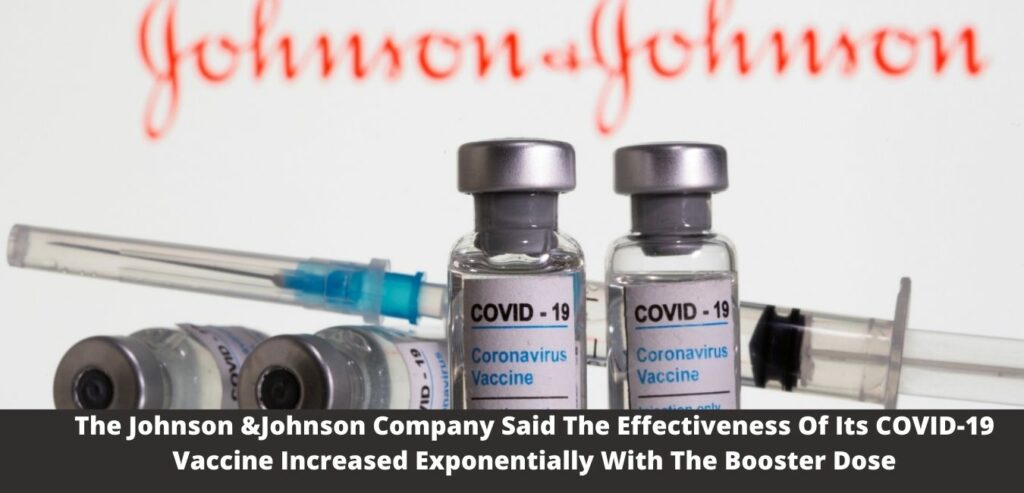Johnson & Johnson’s COVID-19 vaccine is recognized worldwide as the only single-dose vaccine. This Tuesday morning, the company announced that the vaccine showed greater protection against the virus with a booster injection, and they shared the results of a new study they conducted.
Johnson & Johnson said its single-dose vaccine continues to provide “strong and long-lasting protection.” This is one of three vaccine options available in the United States, along with the Pfizer-BioNTech and Moderna vaccine. Additionally, they said that protection “is increased when a booster shot of the Johnson & Johnson vaccine is given,” and the booster shot was “generally well tolerated when given.”
Paul Stoffels, Johnson & Johnson’s Executive Committee Vice Chairman and Chief Scientific Officer, said in a statement: “It is critical to prioritize protecting as many people as possible against hospitalization and death gave the continued spread of COVID-19. A vaccine One-shot COVID-19 is easy to use, distribute and administer and provides strong, long-lasting protection. Long-lasting protection is crucial to vaccinate the world’s population. “
Additionally, he said: “At the same time, we have now generated evidence that a booster injection further increases protection against COVID-19 and is expected to extend the duration of protection significantly.”
According to a press release, the booster injection administered at two months provided 94% protection against COVID-19. In addition to this, a booster dose six months after the first initial dose was found to offer a 12-fold increase in antibodies.
In this sense, it has been possible to determine that the effectiveness of the Johnson & Johnson vaccine is greater than that of other vaccines.
The United States Food and Drug Administration (FDA) issued an authorization to use the Johnson & Johnson vaccine in case of emergency on February 27 of this year, and it is currently available in the United States for adults older than 18 years. The FDA said that “The most frequently reported side effects were injection site pain, headache, fatigue, muscle aches, and nausea. Most of these side effects occurred between 1 and 2 days after vaccination and were mild to moderate in intensity and lasted 1-2 days. “
Final words
Last month, Pfizer obtained FDA approval to administer its vaccine to people 16 years of age and older. The vaccine is still under approval for emergency use for children between the ages of 12 and 15, as the administration is still analyzing the vaccine results.
On the other hand, another of the two-dose options, Moderna, received emergency clearance for older adults in December.
Read More: George Holliday, Who Filmed Police Beating Rodney King, Dies of COVID

